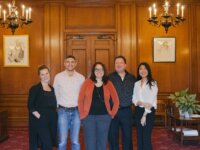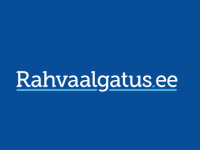NRCan's Office of Energy Efficiency (OEE) Social Innovation UnLab (SIU) is working with program colleagues and Carrot Insights to deliver an energy efficiency rewards pilot via the Carrot Rewards mobile app. Our hypothesis: Engaging Canadians on their smartphones and gamifying learning and action will improve awareness and adoption of energy-efficient behaviours. The pilot is delivering results and entering its third phase this year (2018).
Innovation Tag: Communication
Instead of composting or incinerating invasive alien plant species, we are developing new ways how to process them into new, useful products (paper and wood products, dyes and hybrid coatings, extracts for controlling of plant harmful organisms, food source, input materials for the industries of the future and 3D composites). Invasive alien species are a locally accessible and abundant resource and opportunity for a new business model, promoting zero‑waste approach and circular economy.
Services Guide is a response to the scattered and inefficient information on public services available, developed as an open data digital catalogue, that together with an artificial intelligence software provides personalised information to the user while collecting data about citizen’s needs at the same time.
In May 2016, the Mayor of San Francisco launched the Safe and Clean Neighborhoods Promise. This was a new initiative to improve the quality of life in San Francisco with a coordinated approach to delivering City services better and faster. He issued an Executive Directive to Department Heads responsible for quality of life issues directing them to prioritize services so all residents have access to clean, safe, maintained public spaces and facilities. To ensure success, the mayor created the…
With the complex service system, it is difficult to help young people with numerous problems. The MY LIFE working method is a co-created, human service integration for young adults, complete with case management, a survey assessment, and an ePlatform.
In order to support the operation of certified cash registers, the Financial Administration (FA) launched a crowd-sourcing campaign in 2016 for the purpose of motivating consumers to receive an invoice, take it, check whether it is correct and send it to the FA. This way, every citizen was able to contribute crack down on invoice fraud and to reduce the shadow economy (which is the part of an economy involving goods and services which are paid for in cash, and therefore not declared for tax.)
The purpose of this app is to alert citizens, especially the ones with health problems, about the current and near-future conditions at their current location. This app is linked to complex algorithms developed by scientists at Masdar Institute using real-time satellite data and weather forecasting models. This app issue warnings on air quality and dust concentration to the public and especially to asthma-effected population. Real-time data is updated each 15 min.
Decidim est une plateforme numérique imaginée par la mairie de Barcelone dès 2016 pour créer et coordonner des espaces et des processus participatifs, qui vise à étendre et faciliter l’accès à la participation citoyenne en vue de la co-construction et de la co-production des politiques publiques. Il s’agit d’un projet européen open source : son code est ouvert et libre ; en d’autres termes, tout le monde peut le voir, l’utiliser, le copier ou l’enrichir.
The platform, Rahvaalgatus.ee is digital infrastructure that enforces the new civic right to address the Parliament of Estonia with collective proposals by citizens. The open-source platform enables to first discuss upon a relevant topic, then co-create the proposal, gather digital signatures to it, send the proposal to the parliament, and get updates on the process in the parliament.
The lab brings citizens and stakeholders together in a structured design process to form a common realisation of present challenges and pathways to the future. The stakeholders engaged are all identified and relevant to the target group. They are part of a national ecosystem from user, practitioner to policymakers locally, regionally and nationally. The design methods used in the lab are visualizations of processes, gap analysis and aesthetic disruption to enable needed cultural transformation.



